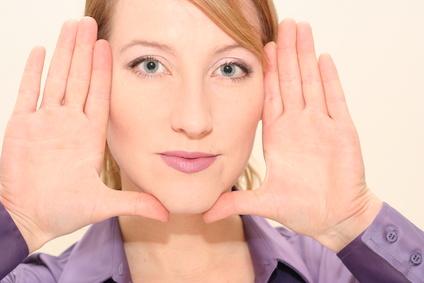One thing mom might have neglected to tell you is that acne often doesn’t blissfully disappear after painful teenage years fraught with efforts to find the right concealer color and finger-crossing that a zit will go fade in time for a big Friday night date. Adult women do get acne, says the American Academy of Dermatology, and when they do, it’s often more severe than when they were teenagers. Treating severe acne with the right medications means putting your trust in a dermatologist, rather than taking a poxed complexion into your own hands.
Women & Acne
Adult women are more likely than their male counterparts to have acne lesions that linger on past the tender teens. A 2007 survey conducted by the University of Alabama at Birmingham School of Medicine suggests that your chances aren’t too good. More than 50 percent of female respondents indicated that they suffered from acne in their 20s. More than 35 percent of women in their 30s had acne, and more than 26 percent of women reported pimples during their 40s. The AAD cites several reasons, such as changes in hormones that affect the oil glands–ovarian cysts, pregnancy, discontinuation of oral contraceptives and even menopause.
How Severe Is It?
Often, adult acne is worse, the AAD tells us, composed of deep-seated, inflamed cysts and pimples, usually on the chin and around the jawline. Severe acne is not only painful and disfiguring; it’s more likely to cause extensive scarring. It typically isn’t responsive to topical treatment, says the AAD, so you might want to rethink any strategy that involves tackling this type of acne on your own using drugstore acne medications. Severe acne requires more aggressive medications; even under a dermatologist’s care, it might take years to resolve after much trial and error. However, almost every case of acne can be treated with time and patience, and in the case of severe acne, with your doctor’s help.
Hormonal Therapies
Severe acne may be treated with hormonal therapies, if you’re a good candidate. It may be as simple as going back on oral contraceptives, or a combination of oral contraceptives and anti-androgen medications. Women are vetted carefully before this type of therapy is used to treat acne, states the AAD. You might not be a good bet for hormonal therapy if you smoke or if you have high blood pressure, migraines or a history of breast cancer, heart attack or stroke, just to name a few. There are three birth control pills approved by the U.S. Food & Drug Administration to treat acne: Ortho Tri-Cyclen, Yaz and Estrostep. Some types of oral contraceptives can actually make lesions worse, the AAD cautions.
Isotretinoin
A strong prescription drug called isotretinoin is the most effective weapon against severe lesions, especially cystic acne and acne that doesn’t respond to other treatments. Isotretinoin is taken daily for between 16 and 20 weeks. Acne can go away for many months or many years; the AAD indicates that many people only need to take isotretinoin once and never again. However, this medication comes with unpleasant and possibly severe side effects. It’s also administered to women of child-bearing age extremely cautiously, as it can cause birth defects in a developing fetus. Women are required to use two types of birth control and undergo routine pregnancy testing during isotretinoin treatment. In the words of the AAD, isotretinoin is a treatment that patient and doctor agree on together, after all of the risks and benefits are weighed.
Other Options
Oral antibiotics have been used to treat acne for quite a number of years, and the AAD indicates that they may also be used for more severe cases. In the U.S., broad-spectrum antibiotics such as doxycline, erythromycin, minocycline and tetracycline may be used, generally at a high dose that tapers off as acne resolves. Large cysts that are likely to rupture may be surgically drained and extracted in your dermatologist’s office or injected with a diluted corticosteroid, which dissolves larger lesions in mere days.
What Doctors Say
There’s no magic pill or lotion to make acne go away overnight, cautions the AAD, and if you have severe acne, you could have quite a few months of treatment staring you down before embarrassing lesions begin to go resolve. Severe acne can affect the way you see yourself and be a big blow to your self-esteem to the point where it impairs your social life. The AAD urges you to talk with your dermatologist so you can get on the path to a clearer complexion.
Photo Credit
- woman”s framed face image by Julia Britvich from Fotolia.com





